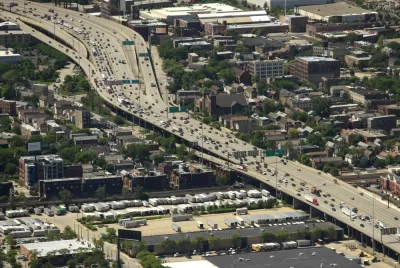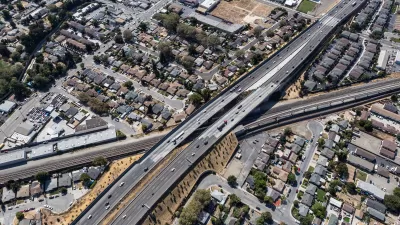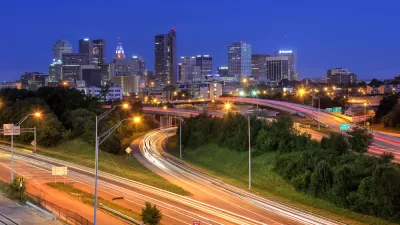To begin to reverse decades of discrimination and disinvestment, future infrastructure spending must put equity at the forefront.

In the history of highway construction in the United States, writes Denise Turner Roth, "[t]here are countless examples of vulnerable populations decimated in the name of progress and expansion." For a century or more, "infrastructure in U.S. cities has been planned, designed, and built too often without consistent and meaningful regard for the impacts on vulnerable communities, historically people of color, particularly those living in poverty."
According to Turner Roth, redressing the decades of negative impacts will take a conscious focus on equity in future infrastructure funding. "Equitable infrastructure considers the short- and long-term impacts on human health and well-being, and takes shape based on input from all members of a community. Equitable infrastructure is, at its core, defined by the principle that everyone deserves a fair opportunity to thrive."
Equitable infrastructure is critical, Turner Roth writes, for several reasons: the inequity perpetuated lasts for generations; inequity is too often invisible to many people; and inequity harms everyone, producing societal costs that ripple beyond the communities most directly affected.
Turner Roth outlines five ways to include equity in infrastructure spending that include diverse representation, consideration of outliers such as rural communities, opportunities for minority-owned businesses, nature-based solutions, and a strong understanding of the past. "Rebuilding our infrastructure today is an opportunity to do it right this time—for everyone. Without equity, our infrastructure remains broken."
FULL STORY: Why equity is critical to our future infrastructure spending

Planetizen Federal Action Tracker
A weekly monitor of how Trump’s orders and actions are impacting planners and planning in America.

Congressman Proposes Bill to Rename DC Metro “Trump Train”
The Make Autorail Great Again Act would withhold federal funding to the system until the Washington Metropolitan Area Transit Authority (WMATA), rebrands as the Washington Metropolitan Authority for Greater Access (WMAGA).

The Simple Legislative Tool Transforming Vacant Downtowns
In California, Michigan and Georgia, an easy win is bringing dollars — and delight — back to city centers.

The States Losing Rural Delivery Rooms at an Alarming Pace
In some states, as few as 9% of rural hospitals still deliver babies. As a result, rising pre-term births, no adequate pre-term care and "harrowing" close calls are a growing reality.

The Small South Asian Republic Going all in on EVs
Thanks to one simple policy change less than five years ago, 65% of new cars in this Himalayan country are now electric.

DC Backpedals on Bike Lane Protection, Swaps Barriers for Paint
Citing aesthetic concerns, the city is removing the concrete barriers and flexposts that once separated Arizona Avenue cyclists from motor vehicles.
Urban Design for Planners 1: Software Tools
This six-course series explores essential urban design concepts using open source software and equips planners with the tools they need to participate fully in the urban design process.
Planning for Universal Design
Learn the tools for implementing Universal Design in planning regulations.
Smith Gee Studio
City of Charlotte
City of Camden Redevelopment Agency
City of Astoria
Transportation Research & Education Center (TREC) at Portland State University
US High Speed Rail Association
City of Camden Redevelopment Agency
Municipality of Princeton (NJ)





























